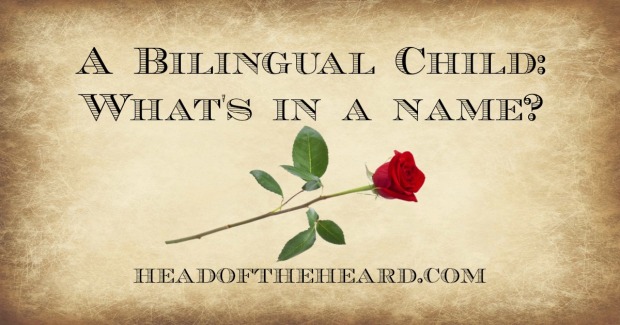
When I was a young kid (as I got older it might have changed somewhat) I had just the one name for my dad: ‘Dad’. I didn’t call him ‘daddy’ or ‘father’ or ‘pa’ or anything else. Just dad.
My son, on the other hand, calls me lots of different names. This might seem obvious and perfectly explicable if he were calling me one name in English and one name in Portuguese, but he has far more than just two names for me.
When he was learning to speak I was ‘daddy’. He would be speaking his broken Portuguese and call me daddy and it would make people smile. It was cute and I was proud to be the only daddy in the city.
Then he went off to day care and he quickly realised he had to refer to me as ‘papai’ if he wanted all the other kids and teachers to know who he was talking about. Although I was a little disappointed I knew that this was all right and proper and the way it should be. This is often shortened to just ‘pai’.
While I was initially happy to be called ‘daddy’, I would have preferred to be called ‘dad’. I didn’t say anything or push it because it is up to Mr T what he wanted to call me. ‘Daddy’ for me, is trying a bit too hard to be cute, with tones of upper-middle classness (I am English and these things still matter) and very Francis Urquhart (the original BBC series, not the American interloper).
We spent a few consecutive weekends with a British friend of mine who also lives here in Curitiba and has a son who is a few years older that Thomas and speaks perfect English. This kid uses ‘dad’ just the way I did and, one evening, Mr T started calling me ‘dad’. I was quite happy about this and hoped that the evolution of my name would now stop. I had one in Portuguese and one in English. That was enough.
Apparently not.
Since about the age of 3, Mr T has been interested in names. I think this initially started because he liked to write the first letters of people’s names, but it continued because my name sounds funny in Portuguese. His vovó has a function in her car that enables you to tell the on-board computer who to call. But this on-board computer can’t speak English so if you say my name properly she doesn’t understand. Instead you have to say it in a Portuguese style which comes out as ‘Stefan Greeny’.
To this day, this is one of the funniest things Mr T has ever heard. He delights in calling me the computer version of my name, followed by howls of laughter.
He also uses my proper name of ‘Stephen’. If he wants something, or decides I have done something wrong, he uses either ‘Stephen’ or ‘Stephen Greene’. There is something very disconcerting about being woken up at 3 in the morning by your 4-year-old shouting out your real name at the top of his voice.
And finally, the latest incarnation of my name: Johnny.
This is the one I like the least because it has never been part of my identity. My middle name in John and, after a weekend away in Sao Paulo with is mother, he came back calling me Johnny. I have no idea why this should be, but apparently it’s funny and so, for the last few weeks, this name has been used whenever he wants to make a joke. While it gives me the chance to channel my inner Jack Nicholson it is lost on Mr T who hopefully won’t see the film for a good while yet.
So the names I have so far include: Daddy, papai, pai, dad, Stephen ‘Stefan’ and Johnny. Who knows what he is going to call me when he is a teenager?




































